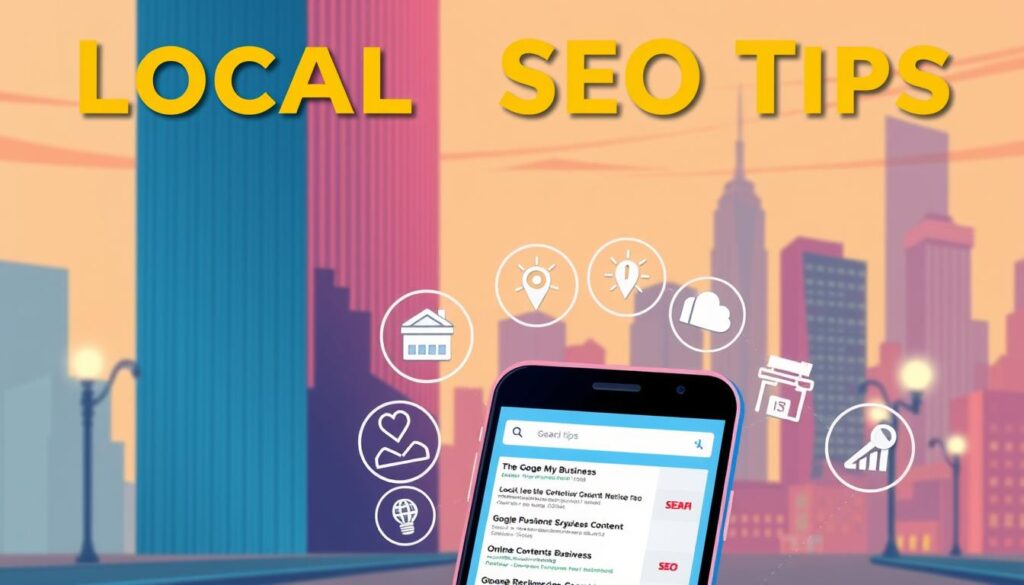In today’s fast-paced business landscape, digital marketing has become an essential tool for reaching specific audiences and building a strong brand identity. As highlighted by industry experts like Dr Jessica Rogers, understanding digital marketing is crucial for connecting effectively with your target audience and establishing trust.
Digital marketing strategies differ significantly from traditional marketing techniques. They offer precise targeting, measurable results, and greater flexibility. Whether you’re a small startup or an established enterprise, leveraging digital channels can help you achieve your business goals more effectively.
In this article, we’ll explore the various types of digital marketing that UK businesses can utilise. From social media to content marketing, we’ll break down each strategy to help you make informed decisions for your brand. By the end of this guide, you’ll have a clear understanding of how to implement these strategies to drive growth and success.
Let’s dive into the key takeaways to set the foundation for our detailed exploration.
Key Takeaways
- Digital marketing is vital for reaching specific audiences and building brand identity.
- Understanding digital marketing strategies helps connect effectively with your target audience.
- Digital marketing offers precise targeting, measurable results, and greater flexibility compared to traditional methods.
- Various types of digital marketing strategies are available for UK businesses to leverage.
- Implementing digital marketing strategies can drive growth and success for your brand.
Introduction to Digital Marketing in the UK
As the digital landscape evolves, UK businesses are increasingly embracing online channels to connect with niche audiences and maximise their marketing efforts. Digital marketing has become a cornerstone for companies aiming to thrive in this competitive environment.
In today’s digital age, businesses in the UK are leveraging online platforms to target specific demographics with precision. This strategic approach allows for optimised marketing spend and greater campaign effectiveness. For instance, 88% of marketers believe that automation and AI are essential for meeting customer expectations and staying competitive.
Digital marketing offers numerous advantages over traditional methods. It provides measurable results, allowing businesses to track the success of their campaigns in real-time. With over 5.45 billion internet users globally, the potential reach for UK businesses is vast and continues to grow.
By integrating digital channels into their marketing strategy, companies can engage their target audience more effectively. Whether through social media, content marketing, or SEO, a well-planned digital strategy can drive growth and success.
Digital Marketing Fundamentals and Its Importance
Understanding the core principles of digital marketing is crucial for any business aiming to thrive in today’s competitive landscape. Key fundamentals include data analysis, consumer targeting, and cross-channel integration, all of which form the backbone of successful digital marketing initiatives. These elements ensure that your marketing strategy is both effective and aligned with your business goals.
In the UK, businesses that grasp these fundamentals gain a significant edge. Strategic planning and data-driven decision making are essential for crafting campaigns that resonate with your audience. For instance, leveraging data analytics allows you to understand consumer behaviour and tailor your approach accordingly. This synergy between traditional marketing principles and modern digital practices creates a powerful strategy that drives engagement and conversions.
Expert insights highlight how these fundamentals have transformed the marketing industry. For example, digital marketing strategies now incorporate AI for content creation and market analysis, enhancing efficiency and personalisation. By embracing these principles, businesses can optimise their campaigns and achieve measurable results.
what are the 7 types of digital marketing
Digital marketing is a diverse field, offering various strategies tailored to different business needs. Analysts and academics have identified seven primary types of digital marketing, each with unique benefits and applications. These categories provide a structured approach for businesses to select the strategies that best align with their objectives.
| Type of Digital Marketing | Description | Key Benefits |
|---|---|---|
| Search Engine Optimisation (SEO) | Enhancing website visibility through higher search engine rankings. | Increases organic traffic and improves brand credibility. |
| Pay-Per-Click Advertising (PPC) | Advertising where you pay for each ad click. | Provides immediate visibility and measurable ROI. |
| Content Marketing | Creating valuable content to attract and engage the target audience. | Builds trust and establishes thought leadership. |
| Social Media Marketing | Engaging with audiences on platforms like Facebook and Instagram. | Enhances brand awareness and customer interaction. |
| Email Marketing | Sending targeted messages to customers via email. | High ROI and direct customer engagement. |
| Affiliate Marketing | Partnering with affiliates to promote products. | Expands reach through trusted partnerships. |
| Mobile Marketing | Targeting users on mobile devices. | Reaches users on-the-go with personalised content. |
Each type of digital marketing offers distinct advantages, allowing businesses to create a tailored approach. By understanding these categories, companies can craft integrated strategies that enhance their online presence and drive growth.
Content Marketing Strategies to Engage Your Audience
Content marketing is a powerful tool for engaging your audience and driving meaningful interactions with your brand. By creating high-quality, relevant content, you can build trust and establish your brand as an authority in your industry.
Storytelling for Brand Awareness
Storytelling is at the heart of effective content marketing. Sharing compelling narratives about your brand helps create emotional connections with your audience. Whether through blogs, videos, or infographics, stories make your content more relatable and memorable.
Integrating SEO with Content Creation
To maximise your content’s reach, it’s essential to integrate SEO best-practices. Keyword research and optimised meta descriptions ensure your content ranks higher in search results. Pairing engaging storytelling with SEO techniques creates a winning strategy for your brand.
By aligning your content with SEO, you can drive sustainable engagement and customer loyalty.
Social Media Marketing for UK Organisations
Social media marketing is revolutionising how UK businesses connect with their audience, offering tailored strategies to enhance brand loyalty and engagement.
Platform-Specific Tactics
Each social media platform has unique features that businesses can leverage. For instance, Instagram and TikTok excel at visual storytelling, perfect for showcasing products creatively. LinkedIn, on the other hand, is ideal for B2B networking and thought leadership content. Twitter offers real-time engagement, making it great for customer service and brand interactions.
Building and Nurturing Online Communities
Engaging regularly with your audience fosters a loyal community. Consistent, thoughtful posts keep your audience interested and invested in your brand. For example, sharing behind-the-scenes content or user-generated posts can create a sense of belonging and encourage customer loyalty.
By understanding your audience’s preferences and behaviours, you can tailor your social media strategy to resonate more deeply. For instance, using analytics tools helps identify which platforms and content types perform best, allowing you to optimise your approach for maximum impact. Whether it’s through engaging videos or insightful articles, a well-crafted social media strategy can significantly enhance your online presence and drive business growth.
For more insights on how to elevate your digital marketing efforts, visit this resource to explore expert strategies and solutions.
Email Marketing Best Practices for Conversions
Email marketing remains one of the most effective digital channels, offering an impressive return on investment (ROI) of up to $42 for every $1 spent. This makes it a cornerstone for businesses aiming to drive conversions and foster lasting customer relationships.
Crafting Personalised Campaigns
Personalisation is key to unlocking the full potential of email marketing. By tailoring your content to individual preferences, you can significantly boost engagement and conversion rates. For instance, personalised subject lines can increase open rates by 26%, while segmented campaigns have been known to drive a 760% boost in revenue.
Key Techniques for Success:
- Dynamic Content: Use data analytics to create emails that adapt to individual customer behaviour and preferences.
- Segmentation: Divide your audience into groups based on demographics, interests, or past interactions to deliver more relevant content.
- A/B Testing: Experiment with different email variations to identify what resonates best with your audience.
Additionally, crafting compelling subject lines and keeping your emails concise can significantly improve results. With the average email open rate at 21.33%, ensuring your message is clear and action-oriented is crucial. Remember, the goal is to guide your customers towards a specific action, whether it’s making a purchase or signing up for a service.
By implementing these strategies, you can optimise your email marketing efforts and build stronger connections with your customers. Whether you’re nurturing leads or driving sales, a well-crafted email campaign can make all the difference.
Search Engine Optimisation and Its Role in Digital Marketing
Search engine optimisation (SEO) is a cornerstone of digital marketing, helping businesses rank higher in search results. By aligning your website with search engine algorithms, you can attract more visitors and boost conversions. SEO is not just about keywords; it’s about creating a seamless user experience that search engines reward.
Keyword Targeting Techniques
Effective keyword targeting is vital for SEO success. Focus on long-tail keywords to capture specific search intent. For example, targeting “best SEO tools for small businesses” can yield better results than generic terms. Use tools like Google Keyword Planner to identify relevant keywords and ensure they naturally integrate into your content.
On-Page vs Off-Page Strategies
On-page SEO involves optimising your website’s elements, such as meta descriptions and content quality. Off-page SEO focuses on building high-quality backlinks from other sites. Both strategies are crucial for improving your search engine rankings and driving organic traffic.
By combining these techniques, businesses can enhance their online visibility and attract their target audience more effectively. For a deeper dive into SEO, visit this guide to explore expert strategies and solutions.
Pay-per-click Strategies to Boost Your Website Traffic
Pay-per-click (PPC) advertising is a powerful tool for driving targeted traffic to your website. By paying only for clicks, businesses can achieve measurable results and maximise their return on investment. Platforms like Google AdWords make it easy to launch campaigns that reach your target audience effectively.
Optimising Ad Spend
To get the most out of your PPC campaigns, it’s crucial to optimise your ad spend. Start by setting a clear budget and bidding on competitive keywords that align with your business goals. Tools like Google Keyword Planner can help you identify high-performing keywords and ensure they are naturally integrated into your ad content.
Dynamic ad content and audience segmentation are key techniques to enhance campaign effectiveness. For example, segmenting your audience based on demographics or past interactions allows you to deliver more relevant ads, increasing the likelihood of conversions. A/B testing different ad variations can also help identify what resonates best with your audience.
Tracking Performance Metrics
Monitoring performance metrics is essential for optimising your PPC campaigns. Key metrics to track include click-through rates (CTR), conversion rates, and cost per click (CPC). A higher CTR indicates that your ads are engaging, while conversions show that your campaign is driving desired actions, such as sales or sign-ups.
Regularly analysing these metrics allows you to refine your strategy, improving future campaign performance. For instance, if a particular ad is underperforming, you can adjust the messaging or target audience to enhance its effectiveness.
| Metric | Importance | Optimisation Tips |
|---|---|---|
| Click-Through Rate (CTR) | Indicates ad relevance and appeal | Use compelling ad copy and relevant keywords |
| Conversion Rate | Measures desired actions (e.g., sales) | Optimise landing pages for user experience |
| Cost Per Click (CPC) | Tracks cost efficiency | Refine keyword targeting and ad copy |
By focusing on these strategies, businesses can create PPC campaigns that drive traffic, boost sales, and deliver a strong return on investment. Continuous optimisation based on performance data ensures long-term success in your digital advertising efforts.
Affiliate Marketing and Influencer Engagement
Affiliate marketing is a powerful strategy that extends your brand’s reach through partnerships with influencers and industry experts. By collaborating with credible voices, you can tap into their audience, driving sales and expanding your customer base. This approach often involves unique affiliate links that track sales, allowing you to reward partners with commissions.
Partnering with Credible Influencers
Choosing the right influencers is crucial. Look for those whose audience aligns with your brand values and target market. For instance, fashion brands might partner with lifestyle influencers to showcase their products. When selecting partners, consider their engagement rates and audience demographics to ensure maximum impact.
Setting up an affiliate programme involves clear terms and transparent compensation models. This builds trust and encourages long-term partnerships. Tools like affiliate networks can help manage relationships and track conversions effectively.
Case studies highlight successful affiliate partnerships. For example, Kinguin scaled their influencer programme by 600% using structured approaches. Such collaborations not only boost revenue but also enhance brand credibility.
When creating affiliate content, ensure it resonates with your audience. Influencers should produce engaging material that feels natural to their followers. Regular communication and support are key to fostering successful partnerships.
By investing in affiliate marketing, you can create mutually beneficial relationships that drive growth and customer loyalty. This strategy is particularly effective in the UK market, where trust in recommendations is high.
Mobile Marketing: Reaching Your Audience On-the-Go
With the ubiquity of smartphones, mobile marketing has become essential for connecting with today’s on-the-move consumers. This strategy allows businesses to deliver responsive design experiences and location-based promotions, ensuring seamless engagement wherever your audience is.
Implementing Responsive Design
Responsive design is crucial for providing a consistent experience across all devices. Over 55% of website traffic comes from mobile devices, making it vital to optimise your pages for smaller screens. A responsive design ensures your website adapts to different devices, improving user experience and reducing bounce rates.
Geo-targeted Promotions
Geo-targeting allows businesses to send personalised offers based on a user’s location. For example, UK retailers can use location-based marketing to promote special deals when customers are near their stores. This approach enhances engagement and drives conversions by delivering relevant content at the right time and place.
| Strategy | Importance | Optimisation Tips |
|---|---|---|
| Responsive Design | Ensures seamless user experience across devices | Optimise page layouts for mobile |
| Geo-targeting | Delivers location-based promotions | Use location data for personalised offers |
| Mobile-friendly Content | Enhances user engagement | Keep content concise and action-oriented |
By integrating responsive design and geo-targeted promotions, businesses can create effective mobile marketing strategies. For more insights on implementing these tactics, visit this resource to explore expert solutions.
Marketing Analytics: Measuring and Optimising Campaigns
Understanding how your campaigns perform is key to improving them. Marketing analytics plays a vital role in helping you make data-driven decisions and refine your strategies for better results.
Data-Driven Insights
Analytics tools like Google Analytics provide valuable insights into your campaign’s performance. By tracking metrics such as click-through rates and conversion rates, you can identify what works and what doesn’t. Setting clear targets helps you measure success and adjust your approach as needed.
For example, if your target is to increase website traffic, you might focus on improving your SEO or social media engagement. Regularly reviewing these metrics ensures your campaigns stay on track and continue to deliver results.
Tools for Effective Analysis
Using the right analytics programs can make a big difference. Tools like Google Analytics offer detailed reports that help you understand your audience better. Features such as audience segmentation allow you to tailor your marketing efforts to specific groups, improving engagement and conversions.
Additionally, A/B testing is a powerful way to optimise your campaigns. By comparing different versions of your ads or landing pages, you can identify which ones perform best and make informed decisions to enhance your strategy.
With the right tools and a focus on data, you can continuously improve your marketing efforts and achieve your business goals more effectively.
Integrating Digital Marketing Channels for a Cohesive Strategy
Creating a seamless experience across all touchpoints is essential for modern businesses. Integrating multiple digital marketing channels ensures a consistent and cohesive approach, maximising the impact of your efforts. By combining the strengths of each channel, you can create a unified strategy that resonates with your audience at every stage of their journey.
A cohesive strategy improves message consistency and brand experience. For instance, aligning your social media, email, and content marketing efforts ensures your audience receives a unified message. This consistency builds trust and strengthens your brand identity. Real-world examples, such as multi-channel campaigns, show how integrated approaches lead to higher engagement and conversion rates.
| Channel | Integration Benefit |
|---|---|
| Social Media & Email | Enhances audience engagement through consistent messaging |
| Content & SEO | Improves visibility and drives organic traffic |
| PPC & Affiliate | Maximises reach and ROI through targeted campaigns |
By aligning these strategies, you create a powerful, unified marketing effort. For expert guidance on avoiding common pitfalls, visit this resource. Integrated channels are key to maximising your marketing investments and driving long-term success.
Innovative Techniques and Emerging Trends in Digital Marketing
As technology advances, innovative techniques like video marketing are reshaping how businesses engage with their audiences. These emerging trends are transforming the digital landscape, offering fresh ways to captivate consumers and stay ahead of the competition.
Leveraging New Technologies
Video content is rapidly gaining traction as a powerful medium for storytelling and engagement. With platforms like TikTok dominating social media, businesses are embracing short-form videos to connect with their audiences. This shift is supported by data showing that 86% of businesses now use video as a key marketing strategy. Additionally, live videos are proving particularly effective, with users spending three times longer watching them compared to pre-recorded content.
Preparing for the Future of Digital Marketing
To stay ahead, businesses must adopt emerging technologies and platforms. For instance, AI tools like Chat GPT are revolutionising content creation and market analysis. Influencer marketing is also scaling, with platforms like Instagram and YouTube enabling brands to reach wider audiences. Early adopters are leveraging these tools to prepare for future trends, ensuring they remain competitive in a fast-evolving market.
| Trend | Technique | Benefit |
|---|---|---|
| Video Marketing | Short-form and live videos | Higher engagement and brand visibility |
| AI Integration | AI tools for content creation | Efficient and personalised campaigns |
| Influencer Marketing | Partnerships with influencers | Expanded reach and trust |
By embracing these innovative techniques, businesses can stay ahead of the curve and achieve their marketing goals effectively.
Conclusion
In today’s competitive UK business environment, embracing a well-rounded digital marketing strategy is key to reaching your target audience effectively. By understanding and leveraging the diverse range of digital channels, you can craft a cohesive approach that aligns with your business goals. Whether you’re focusing on SEO, social media, or email marketing, each strategy offers unique benefits that can enhance your brand’s online presence.
A data-driven mindset is essential for success. Regularly analysing campaign performance and adapting to consumer trends ensures your efforts remain impactful. For instance, optimising your website for mobile devices can significantly improve user experience, given that over 55% of website traffic comes from mobile devices. Additionally, personalising your email campaigns can boost engagement, with segmented campaigns known to increase revenue by up to 760%.
As you move forward, consider integrating emerging technologies like AI and video marketing to stay ahead. These tools not only enhance efficiency but also provide new ways to connect with your audience. Remember, a flexible and adaptable strategy is crucial in today’s fast-evolving digital landscape.
By taking these insights and turning them into actionable steps, you can elevate your digital marketing efforts and drive long-term success. Start by assessing your current strategies, identify areas for improvement, and explore new channels to reach your audience. With consistent effort and a focus on innovation, you can unlock the full potential of digital marketing for your business.
So, take the next step today and harness the power of digital marketing to propel your UK business towards future growth and success. The ever-changing digital world is full of opportunities—seize them with confidence and a well-informed strategy.
FAQ
How can I improve my website’s visibility in search results?
Focus on search engine optimisation (SEO) by targeting relevant keywords, creating high-quality content, and ensuring your site is mobile-friendly. Regularly updating your website with fresh content can also boost your search engine rankings.
What is the best way to engage my target audience on social media?
Use social media marketing to share engaging content and interact with your audience. Platforms like Instagram, LinkedIn, and Facebook offer tools to create targeted ads and build meaningful connections with your customer base.
How do I measure the success of my digital marketing campaigns?
Use marketing analytics tools to track key performance metrics such as website traffic, conversion rates, and ROI. Regularly reviewing these metrics will help you refine your marketing strategy and achieve better results.
What is the difference between SEO and PPC?
SEO focuses on improving your website’s ranking in organic search results, while PPC involves paying for ads that appear at the top of search engine pages. Both strategies can drive traffic to your site but work in different ways.
Can email marketing still be effective in today’s digital landscape?
Absolutely! Email marketing remains a powerful tool for nurturing leads and driving conversions. Personalise your campaigns and ensure your emails are mobile-optimised to engage your audience effectively.
How can I use affiliate marketing to promote my products?
Partner with affiliates who have a strong online presence. They will promote your products in exchange for a commission on sales. This strategy can expand your reach and attract new customers to your brand.
What role does content marketing play in my overall strategy?
Content marketing helps build trust and establishes your brand as an authority in your industry. By creating valuable and relevant content, you can attract and retain a loyal audience, driving long-term growth for your business.
How can I ensure my digital marketing efforts are cost-effective?
Focus on targeted campaigns and measure the performance of each channel. Allocate your budget to the strategies that deliver the best results, whether it’s social media ads, SEO, or email marketing.
What is the importance of mobile marketing for my business?
With most users accessing content on mobile devices, mobile marketing ensures your campaigns reach your audience wherever they are. Implement responsive design and geo-targeted promotions to maximise your impact.
How can I stay updated with the latest digital marketing trends?
Follow industry leaders, attend webinars, and subscribe to reputable marketing blogs. Staying informed about emerging trends will help you adapt your strategy and remain competitive in the ever-evolving digital landscape.










